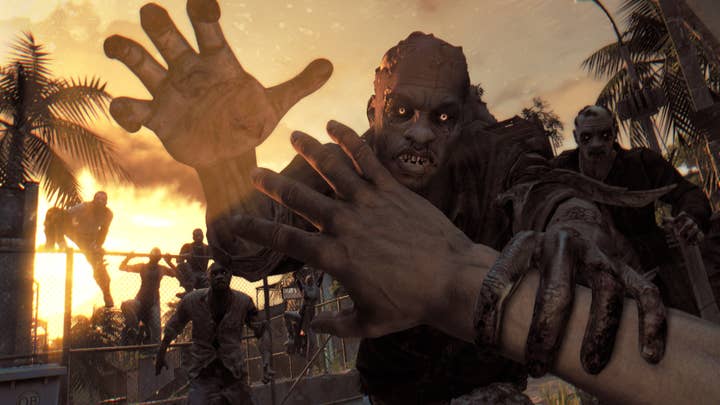How every studio head can stop their business from failing
Matt Binkowski explores the three pillars to keeping your business in good health
You're not going to like what I'm about to say: I've observed enough reality across all areas of the video games business to know that more often than not, companies fail because the people at the top aren't doing their jobs properly.
Fundamentally, like any business, video game development companies need a commander-in-chief to lead the charge. If you are that person, you are not the developer. Your job isn't to make the game, or get involved in the production details. Your role is bigger, broader. Defining the short and long term strategies, establishing a customer base, deciding what product to build for them, looking after your revenue streams, cash flow and, of course, your team.
For those furiously head-shaking in disagreement because your business is small and you're expected to wear multiple hats, it is still crucial to understand the requirement of wearing each of them.
Companies fail because the people at the top aren't doing their job properly
Build a strong foundation
Throughout the production process, you and your development team will inevitably face tough decisions that require your input as the person at the top. At times, you may end up making calls based on personal, unavoidably biased opinions and preferences -- rather than deciding what's best for the gamers and, ultimately, your business. As a consequence, budgets get blown, timelines are delayed, and people on your team become frustrated, overworked and resentful.
Can this be avoided? The short answer is yes. But it requires your company's top management setting clear business objectives for projects from day one, so that when those tough decisions do arise, there are guidelines on hand that allow you to address them properly as a team.
This is especially key if you are self-funding and self-publishing your products. You'll firstly want to aim for a specific release window and production timeline -- which you should decide upon by assessing the situation in the market, partnership opportunities, and your company's cash flow.

Once you've picked a date, it's time to consider the second significant factor: your project's budget. Seemingly easy to decide, yet notoriously difficult to stick to. The amount you can afford to spend should be judged against your business model, product price, and expected revenue.
You should also, critically, consider the game quality required to justify the above. Stay as close to reality as possible, and avoid wishful thinking. Who wouldn't love to declare they're going to make $100 million, but ask yourself: can you deliver it? Which games have historically made that kind of money? Consider their production value, visual quality, how much content they have. Are you equipped to build a game like that?
If you're producing your first independent game, shipping it without significant delay, tripling your budget, and almost dying in the process is a phenomenal achievement. Regardless of your experience with other teams and games, you'll need to acquire vast levels of knowledge to reach that Holy Grail release date.
One essential thing that is rarely done right is establishing your product vision and providing clear direction for the whole team. Another is the ability to anticipate and manage creative and production risks. Finally, you need to learn how to function as a team -- with all members working effectively in their roles. It's tougher than it seems.
In reality, aiming for your inaugural game to break even, financially, is an entirely fair ambition. What you learn the first time round will undeniably set you up for any future projects, so your efforts will be far from wasted.
Aiming for your inaugural game to break even financially is an entirely fair ambition
Perhaps, on the other hand, you have more experience and a few games under your belt, but you're entering a new niche or a fiercely competitive genre. In this case, you equally shouldn't expect to be instantly quids in. You can, however, focus on establishing a firm foothold in the market, and building foundations for further expansion later.
Even if you're at the most confident end of the spectrum and feel ready to dominate the market, remain honest with yourself and your team throughout the process -- defining and communicating your aims clearly, and ensuring everyone understands the scope and required quality of the project, along with your expectations of them as a team member. Only then can you truly have meaningful discussions about specifics and their viability.
Can you achieve the quality you want within the timeframe and budget? Do you have skills, tools and pipelines in place? Make a plan, together, at the start, and you'll be better equipped to conquer unforeseen hurdles later.
Plan your business growth
All business owners want to grow their company's value. Perhaps by building a single large-scale, high-production product, or by scaling to develop multiple products at the same time. But, as most of us can already guess, it never happens magically.
Defining and discussing your team's growth goals up front is key to making sure each project is a step in the right direction. What do you need to learn to complete the project? What tools and tech should you develop? Who else should you hire? For instance, you may want to learn how to get published on Steam or Epic, or you need to develop geometry streaming technology to keep up with the competition. Or perhaps you want your games to have a signature art style, for which you'll need a fantastic art director that can lead and coach your artist.

Thinking two or even three games ahead would make for sensible planning. Because to operate at the level you desire you'll need specific people, with particular skills, operating distinct pipelines, tools, and technology. The last thing you want is to spend years building the tech and skillsets to make racing games, only to decide on a whim that you'll now focus on open-world RPGs. There are too many complexities and nuances in every genre, and with the video game market getting more mature, you can expect fierce competition everywhere you go. Carefully building relevant experience and leaning on your team's collective strengths is the only way to stay ahead of the game.
The goals of your brand and studio are also something to cement along the way. Do you want to consciously make a name for yourself and, if so, what do you stand for? What could you fundamentally not exist without, and what offering or skillsets would you be willing to sacrifice if things get tough? Defining internal brand goals will help team discussions remain transparent. All decisions need explaining and everyone will appreciate a concrete justification in the place of "because I said so."
Thinking two or even three games ahead would make for sensible planning
Equip yourself to sell
An often trivialised yet all-important topic for studio heads is the actual selling of your game. The heartbreaking reality is, nobody cares about it -- until you make them care. To gain the crucial support of fans, partners, influencers and press, you need to explicitly go after it.
Ask yourself, who do you want to partner with, and how do you want to be seen? If you're nobody from nowhere and just getting started, making sure they know you exist is an excellent place to start. And if you can render yourself as someone reliable and trustworthy, it can open you to opportunities you wouldn't otherwise get. Just remember that it's about giving not taking. Think about why they would want to partner with you. How can you help them? Maybe your game makes a fantastic display of their hardware capabilities, or perhaps you provide content that is relevant for their audience.
Another critical thing to consider is if you can publish yourself. Do you know how to adequately present and position your products on the platforms you want to be seen on? Are you a dab hand at marketing? If the answer, in reality, is no, take your time to find the right partner -- perhaps a publisher -- and tell them where you want to be and let them help you get there.
Can you create a successful game without having business objectives, following only gut feelings and biased opinions? It could happen. But establishing a successful gaming business, long term, takes a lot more fight and foresight. It's an immensely cooperative effort, in an immensely competitive marketplace which -- like many creative entities -- follows the brutal Pareto principle of a small percentage commanding most of the market share. Which can only mean one thing: this is war.
There's plenty of uncertainties, but with a good plan and the right strategic allies, you have a decent chance of success. A chance of success. There are no guarantees. You will need some luck to win, but as Louis Pasteur famously said: "Fortune favors the prepared mind." So what are you waiting for? It's time to rally the troops and draw up the plans.
Matt Binkowski is a creative strategist with ten years of experience, mostly known for his design work on Dead Island and Dying Light. Recently he supervised teams as publishing director at Artifex Mundi, with one of its games -- Hot Shot Burn -- receiving the best indie multiplayer award at Gamescom 2019. If you need mentorship or advice, you can find Matt on LinkedIn.